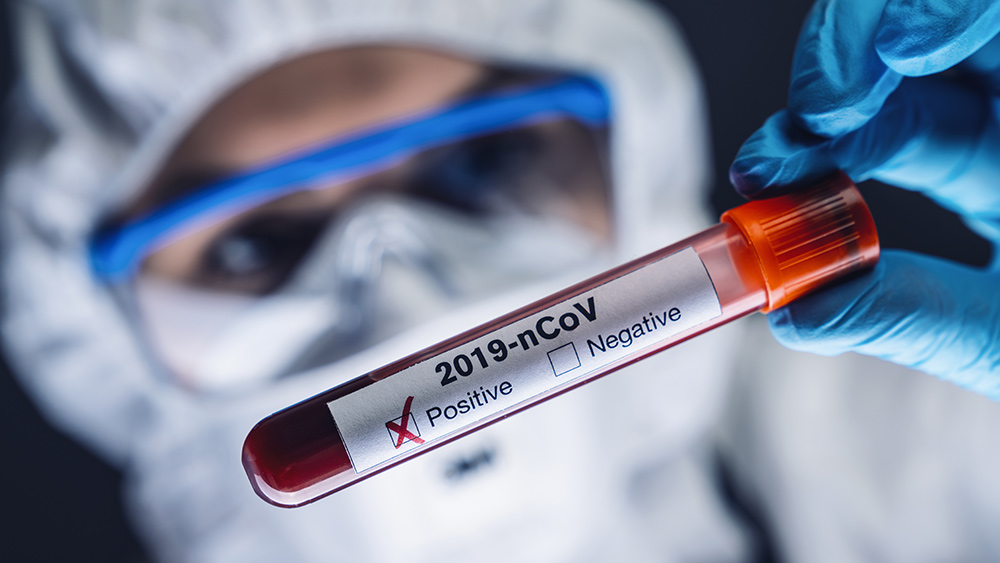US government to send remdesivir to coronavirus hotspots, depleting federal stockpile
07/01/2020 / By Ralph Flores

The U.S. government will ship more doses of the antiviral drug remdesivir to states experiencing a surge in COVID-19 cases including California, Texas, Florida and Arizona, the Department of Health and Human Services (HHS) announced last week.
White House coronavirus task force coordinator Dr. Deborah Birx confirmed the report, which was first posted on the agency’s website, during Friday’s press briefing. The treatments, which are expected to ship this week, will expend the government’s stockpile, which amounts to 120,647 treatment courses in total.
The health department noted that it will work with Gilead Sciences, the drugmaker behind the experimental drug, to determine how future donations will be allocated. Gilead Sciences has said that it expects an inventory of at least 2 million doses by the end of the year.
“Right now, we’re waiting to hear from Gilead what is their expected delivery availability of the drug as we go from June to July,” said Dr. Robert Kadlec, assistant secretary for preparedness and response, in a CNN interview in early June. “We’re kind of not in negotiations, but in discussions with Gilead as they project what the availability of their product will be.”
Meeting demand is a challenge
From its start as a failed drug for treating Ebola and hepatitis, many countries – including the U.K., Singapore and South Korea – have approved the use of remdesivir for treating severe COVID-19.
In the U.S., the Food and Drug Administration (FDA) has approved the emergency use of remdesivir for hospitalized patients with severe COVID-19. In a press briefing in May, FDA Commissioner Stephen Hahn said that the drug’s approval was “an important clinical advance[ment]” in the fight against COVID-19.
Early studies on remdesivir have shown that it can reduce a patient’s recovery by five days and that a five-day course of the treatment is optimal. A recent animal study also showed that remdesivir prevented lung disease in macaque monkeys, suggesting that the drug could be used in early treatment to prevent severe cases. However, clinical trials for remdesivir have shown mixed results, at best.
The initial findings of its first large-scale clinical trial revealed a “modest improvement” in their symptoms. The study did not include patients with severe symptoms, however, the main target of the FDA approval. In addition, an earlier study involving fewer participants, showed that the drug did nothing to reduce the presence of SARS-CoV-2, the pathogen behind COVID-19, in the bloodstream.
Yet, even if remdesivir makes good on its promise of treating COVID-19, producing enough for everyone who needs the drug is nothing short of challenging. The HHS said that it has been working to help Gilead “with some of their supply chain challenges in terms of raw materials and being able to accelerate the process.” The company has released a statement that it is currently working with governments and healthcare systems to provide remdesivir for patients who need it the most. (Related: US taxpayers paid for remdesivir’s development, so why will Gilead get all the profit?)
With the global caseload pushing toward 10 million, there may not be enough remdesivir to meet demand.
A nationwide shortage can trigger hoarding
Running out of remdesivir can lead to people – in particular, doctors – to stockpile on the drug, like what some had done in the earlier stages of the pandemic. A ProPublica report in March revealed that doctors prescribed chloroquine and hydroxychloroquine, two drugs that gained national attention after President Donald Trump promoted them as possible treatments for COVID-19, to family members, friends and even themselves. In some states, the practice became so rampant that some state pharmacy boards issued emergency restrictions on how the drugs were dispensed.
As the federal stockpile for the FDA’s wonder drug is finally used up and new cases continue to rapidly increase – how the U.S. government will manage the next few months is anybody’s guess.
The U.S. currently has over 2.5 million coronavirus cases and more than 125,000 deaths, according to data from Johns Hopkins University.
Pandemic.news has more stories on the ongoing Wuhan coronavirus outbreak.
Sources include:
Tagged Under: Big Pharma, coronavirus, corruption, covid-19, Fact Check, FDA, government, lies, outbreak, pandemic, patent, Prescription drugs, profit, propaganda, remdesivir, superbugs, treatment, virus, Wuhan coronavirus
RECENT NEWS & ARTICLES
Pandemic.News is a fact-based public education website published by Pandemic News Features, LLC.
All content copyright © 2018 by Pandemic News Features, LLC.
Contact Us with Tips or Corrections
All trademarks, registered trademarks and servicemarks mentioned on this site are the property of their respective owners.





















